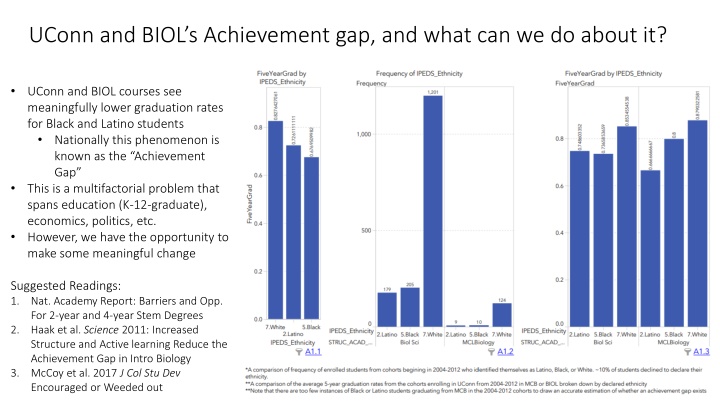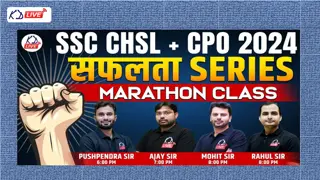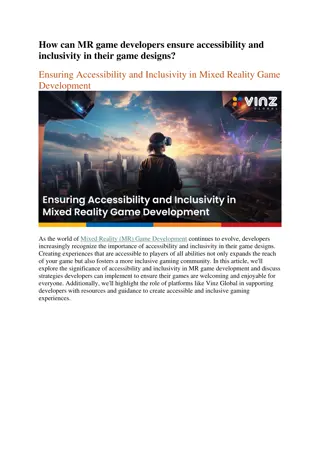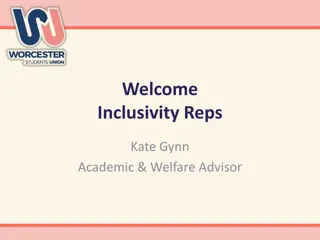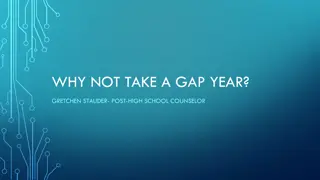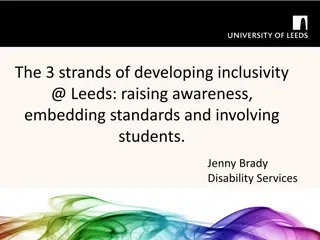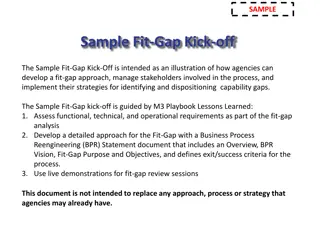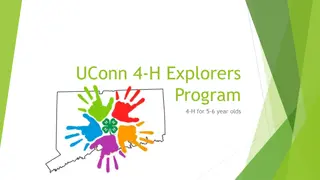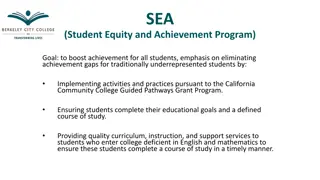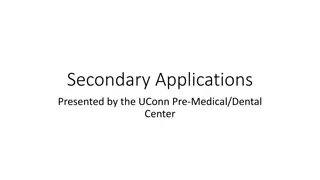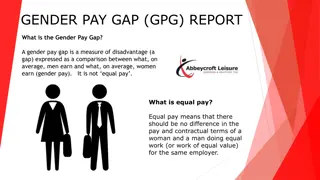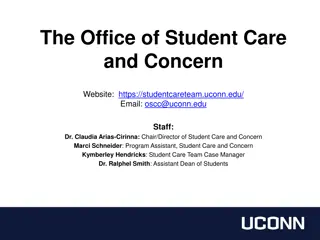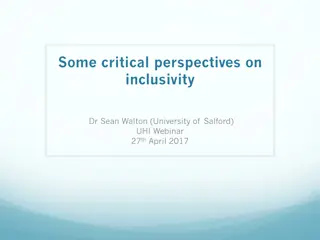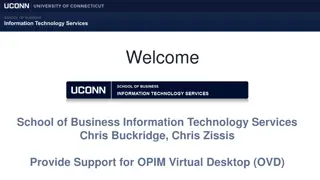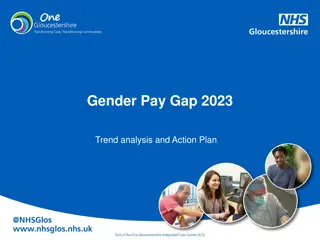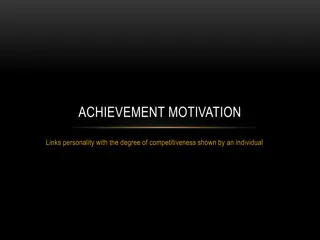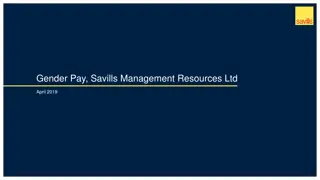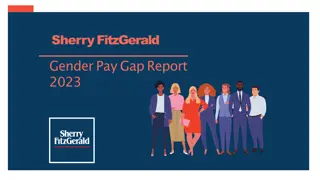Addressing the Achievement Gap in UConn and BIOL Courses: Strategies for Inclusivity
UConn and BIOL courses show lower graduation rates for Black and Latino students, contributing to the nationwide Achievement Gap. The issue stems from various factors, including stereotype threat and a weed-out culture. Strategies such as increased structure, active learning, and creating a sense of belonging can help mitigate these challenges. By addressing these issues, we can work towards greater inclusivity and support for all students, especially those from underrepresented backgrounds.
Uploaded on Nov 12, 2024 | 2 Views
Download Presentation

Please find below an Image/Link to download the presentation.
The content on the website is provided AS IS for your information and personal use only. It may not be sold, licensed, or shared on other websites without obtaining consent from the author.If you encounter any issues during the download, it is possible that the publisher has removed the file from their server.
You are allowed to download the files provided on this website for personal or commercial use, subject to the condition that they are used lawfully. All files are the property of their respective owners.
The content on the website is provided AS IS for your information and personal use only. It may not be sold, licensed, or shared on other websites without obtaining consent from the author.
E N D
Presentation Transcript
UConn and BIOLs Achievement gap, and what can we do about it? UConn and BIOL courses see meaningfully lower graduation rates for Black and Latino students Nationally this phenomenon is known as the Achievement Gap This is a multifactorial problem that spans education (K-12-graduate), economics, politics, etc. However, we have the opportunity to make some meaningful change Suggested Readings: 1. Nat. Academy Report: Barriers and Opp. For 2-year and 4-year Stem Degrees 2. Haak et al. Science 2011: Increased Structure and Active learning Reduce the Achievement Gap in Intro Biology 3. McCoy et al. 2017 J Col Stu Dev Encouraged or Weeded out
The weed-out culture causes disproportionate harm through Stereotype threat Black and Latino students (among others): See few examples of successful scientists/professionals who look like them Enter a classroom of students who do not look like them In intro courses All students face situations where they are challenged Black and Latino students (+1st gens and others): Perceive that they alone are struggling More likely to perceive that they are not cut out for science This phenomenon is called Stereotype threat in Ed. And psych research Stereotype treat often manifests in the absence of feeling like one belongings in a field/course/job/etc
F2019 BIOL 1107 students: asked Did you experience feeling like an outsider during this course? How could Dr. Kline help people feel like they belong in the BIOL 1107 community in the future? Question based on Dr. Audette s suggestion for SET questions Administered with SETs (not required, 163 responders across both sections) Many said no, they did not feel like an outsider. Examples from those few who responded yes I felt like I was the only one who didn't understand anything. As a student taking this course as a gen ed, I did not feel that it was important for me to be a part of the "BIOL 1107 community. It is very easy to feel like the "outsider" in this course. I did not do as well as I wanted on the first few exams and I took it upon myself to do better on the next exam. I took advantage of the tutoring options and did better one the second exam. This course requires a lot of will power and determination. i felt like an outsider the entire course. it was hard to understand, (not ehr fault) and was seriously bringing down my confidence. this course is super intense and should NOT be offered on a student that is older and not comfortable with technology. you should not trick people into taking these courses i felt kind of like an outsider bc i knew i wasn t a biology person and the content was a bit overwhelming maybe just a slower introduction and establishing availability earlier? Yes, not just for science majors Yes I felt like an outsider in the course because I had no previous experience with the topics presented compared to most other students and I had to teach myself most of the stuff which was extremely difficult. Dr. Kline could have separate office hours aside from the regular office hours, specifically to go over topics in lecture at a slower pace with students who have difficulty keeping up due to being first timers in that type of classroom environment. This way it will be easier for students to ask questions and better understand the lesson. I did not feel like an outsider, but I would have if I did not take AP Biology and did not have a strong foundation in the STEM subjects.
F2019 HARTFORD BIOL students asked: Did you experience feeling like an outsider during this course? How could Dr. Audette help people feel like they belong in the BIOL 1107 community in the future? Two sections of 72 students, exams 50% open ended, 50% multiple choice, frequent formative assessments and reflective assignments implemented at scale. Question based on Dr. Audette s suggestion for SET questions Administered with SETs (not required, 45 responders across both sections) All said no, they did not feel like an outsider. Many students were very vocal about the formative feedback they received, it made them feel a personal connection with the class: During my first month of this semester, I feel so stressed about my studies. On that day I received Dr. Audette's reply about my exam revision. He was affirmative my effort during that days and gave my points back. I am so impressed, and I even cried because of that reply. Although Dr. Audettle has hundreds of students, he still cares about everyone single one. No, I felt like I belonged in his course and he did a great job in making the course feel more personal with his feedback comments and also by holding review sessions that I found extremely helpful. Anyone could ask questions and he would love to answer them with detail. Dr. Audette is one of the few professors who actually tries to get to know his students as individuals so he can give us personalized feedback and notices our strengths and weaknesses. And when he would pass the exams out he would always wish the rows "good luck guys", and as students we appreciate this so much. Dr. Audette would also always remind us that this is a challenging course and he would be proud of even the slightest improvement and encourage us to do better.
Actionable Items: What we can do to make students feel like they belong in the sciences: Limit weed-out culture in introductory courses: (where students decide if they belong) Continue peer mentorship/tutoring in 1107 Find a way to give students personalized feedback so that they connect with the professor/material Include assignments that ask students to reflect on how hard work has helped them to grow grow and surpass challenge A key message to give to our students: Science includes a lot of challenging material and every person in this class should expect to be challenged at some point in this class. However, I care deeply that you grow grow and succeed. Here are all the resources at your disposal. Here is some personal feedback that will help you excel in this course.
Vignette: formative feedback Yeager, D. S., Purdie-Vaughns, V., Garcia, J., Apfel, N., Brzustoski, P., Master, A., Hessert, W., Williams, M. & Cohen, G. L. (2014). Breaking the Cycle of Mistrust: Wise Interventions to Provide Critical Feedback Across the Racial Divide. Journal of Experimental Psychology: General, 143, 804-824. Population: African-American and European-American seventh-graders Task: They first asked the students to write an essay and the students teachers to comment on and grade the essays. Intervention: (double blinded) Control received critical feedback only Treatment: I m giving you these comments because I have very high expectations and I know that you can reach them. Measurement: Students were given the option of revising their essays (but could keep original grade) Outcome: AA students were over 2x as likely to revise their essays if part of the treatment group 88% of AA students in treatment group s revised essays improved compared to 34% control Some possible growth in white population but not significant What I learned from this: Stressing that 1. students grow over time, 2. that the material should be challenging, 3. that I personally care about their success- can lead to disproportionate benefits for at-risk students.
